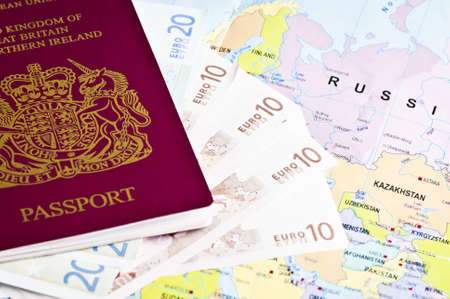Overview of Legal Framework for Cafés in the UK
Opening a café in the United Kingdom involves navigating a complex legal landscape, with distinct regulations and requirements in England, Scotland, Wales, and Northern Ireland. While there are several shared legal obligations—such as food safety compliance, health and safety standards, and employment law—key differences exist across the four nations that can affect your business planning and operations. Each jurisdiction has its own licensing authorities, application processes, and specific requirements for premises approval, food handling, waste management, and alcohol sales. For instance, Scotland’s approach to alcohol licensing differs from that of England and Wales, while Northern Ireland enforces unique trading hours and planning permissions. Understanding these distinctions is essential for ensuring full compliance and avoiding costly legal missteps. This overview will serve as your guide to the key legal frameworks and highlight the critical differences you need to address when setting up your café in any part of the UK.
2. Business Registration and Food Business Approval
Before opening a café in any part of the UK, it’s crucial to properly register your business and notify the appropriate authorities. Each region—England, Scotland, Wales, and Northern Ireland—has specific requirements for both registering as a business entity and for food business approval.
Registering Your Business Entity
You’ll need to decide whether you’ll operate as a sole trader, partnership, or limited company. Registration is typically done through HM Revenue & Customs (HMRC) or Companies House, depending on your chosen structure.
| Business Structure | Where to Register | Main Requirements |
|---|---|---|
| Sole Trader | HMRC | Register for self-assessment; keep business records; pay income tax & National Insurance |
| Partnership | HMRC (and Companies House if LLP) | Register for self-assessment; partnership agreement; file returns |
| Limited Company | Companies House & HMRC | Company registration number; file annual accounts & returns; corporation tax registration |
Food Business Operator Notification
You must inform your local council that you intend to operate a food business at least 28 days before trading. This applies regardless of whether you’re in England, Scotland, Wales, or Northern Ireland. Registration is free, but failure to register can lead to prosecution and fines.
Region-Specific Guidance:
| Region | Registration Authority | Key Notes |
|---|---|---|
| England & Wales | Your local council’s environmental health department | Complete online form via council website; environmental health inspection required post-registration. |
| Scotland | Your local authority’s environmental health service | You may need additional approval under Scottish Food Hygiene Regulations; inspection will be scheduled. |
| Northern Ireland | Your district council’s environmental health service | Similar process as England/Wales; ensure compliance with The Food Hygiene Regulations (NI) 2006. |
Important Points for All Regions:
- Registration does not have an expiry date but must be updated if you make significant changes (e.g., menu change, new owner).
- Council officers may conduct unannounced inspections to assess food safety compliance.
- If you plan to serve certain foods (like meat or dairy), approval rather than simple registration may be needed—especially if supplying other businesses.
By ensuring your café is properly registered and approved as a food business operator according to the regulations in your UK region, you set a solid legal foundation for future growth and financial stability.

3. Health and Safety Standards
Ensuring compliance with health, hygiene, and food safety standards is mandatory for all cafés operating in England, Scotland, Wales, and Northern Ireland. Before opening your doors, you must register your café with the local authority’s environmental health department at least 28 days prior to trading. This applies whether you are setting up a brand-new establishment or taking over an existing premises. Registration is free of charge but is a legal requirement under the Food Safety Act 1990.
Upon registration, your café will be subject to routine inspections by environmental health officers (EHOs) who assess cleanliness, food storage, preparation practices, and staff training. Compliance with regulations such as the Food Hygiene (England) Regulations 2013 (with equivalent regulations in Scotland, Wales, and Northern Ireland) is essential. Failing to meet these standards can result in improvement notices, fines, or even closure of your business.
Food Hygiene Rating Scheme
Your café will receive a Food Hygiene Rating following inspection by EHOs. This rating ranges from 0 (urgent improvement necessary) to 5 (very good). While displaying the rating sticker is mandatory in Wales and Northern Ireland, it is strongly encouraged in England and Scotland as it boosts customer trust and transparency. Consistently high ratings are crucial for building a reputable brand and attracting loyal customers.
Staff Training and Allergen Management
All food handlers must be trained in food hygiene appropriate to their role. In addition, you must comply with allergen labelling laws under the Food Information Regulations 2014. This includes providing clear information about 14 specified allergens present in your menu items. Regular staff training on cross-contamination prevention and safe food handling should be documented and updated.
Record Keeping and Ongoing Compliance
Maintain thorough records of cleaning schedules, temperature checks for fridges/freezers, pest control measures, and staff training certificates. These documents may be requested during inspections and can protect your business in the event of a dispute or claim. Adhering to robust health and safety protocols not only ensures legal compliance but also safeguards your reputation within the competitive UK café sector.
4. Licences for Selling Food and Drink
Securing the correct licences for selling food and drink is a non-negotiable step for opening a café in any part of the UK. Each nation—England, Scotland, Wales, and Northern Ireland—has its own set of regulations and nuances, but there are core requirements that apply universally.
Essential Food and Drink Licences
Every café must register as a food business with the local authority at least 28 days before trading begins. This registration is free but mandatory. Additionally, cafés serving hot food or drinks between 11pm and 5am require a late night refreshment licence.
| Type of Licence | England & Wales | Scotland | Northern Ireland |
|---|---|---|---|
| Food Business Registration | Local Authority | Local Authority | District Council |
| Late Night Refreshment Licence | Required (if open 11pm–5am) | N/A (different regulations apply) | N/A (different regulations apply) |
| Alcohol Licence (Premises Licence) | Local Council via Licensing Act 2003 | Licensing Board under Licensing (Scotland) Act 2005 | District Council via Licensing (NI) Order 1996 |
| Personal Licence (for alcohol sales) | Local Council | Licensing Board | District Council |
Food Safety Compliance and Training
Café operators must also comply with strict food safety standards, including hazard analysis and critical control point (HACCP) procedures. Staff handling food should undertake certified food hygiene training relevant to their role and responsibilities.
Regional Nuances to Consider
- England & Wales: Alcohol sales require both a premises licence and at least one staff member holding a personal licence.
- Scotland: Every premises must have a designated premises manager with a personal licence; stricter age verification applies (“Challenge 25” policy).
- Northern Ireland: Alcohol licensing is more restrictive, often requiring proof of public need and sometimes limited by the number of existing licences in an area.
Council Inspections and Ongoing Compliance
Your local Environmental Health Officer will inspect your premises to ensure all requirements are met before you can operate fully. Regular inspections may follow to maintain compliance, especially if you prepare high-risk foods or sell alcohol.
5. Additional Permits and Permissions
When opening a café in the UK, it is crucial to account for additional permits beyond the primary licences. Requirements can vary significantly across England, Scotland, Wales, and Northern Ireland, making local research essential.
Outdoor Seating Permissions
If you wish to place tables and chairs outside your premises, you must apply for a ‘pavement licence’ from your local council. The application process, fees, and consultation period differ by region. For example, English councils generally require public consultation and display of notices, while Scottish authorities may have differing public space guidelines.
Signage Consent
Displaying external signs, including menu boards or illuminated signage, typically requires advertisement consent from your local planning authority. The rules are especially strict in conservation areas or on listed buildings, with more stringent controls in parts of London or Edinburgh’s historic centre.
Waste Disposal Arrangements
Proper waste management is non-negotiable. Each devolved nation has its own environmental regulations—councils set requirements for commercial waste collection contracts and recycling practices. For instance, Wales enforces stricter food waste separation compared to other regions. Failure to comply risks fines and reputational harm.
Entertainment Licences
If you plan to offer live music, recorded entertainment, or television broadcasts within your café, you will likely need a premises licence or temporary event notice. Requirements differ: England and Wales follow the Licensing Act 2003; Scotland operates under the Licensing (Scotland) Act 2005; Northern Ireland applies its own licensing regime. Always check with your local licensing board before hosting any entertainment events.
Regional Differences Matter
The type and complexity of permissions required can fluctuate not just by country but by local authority area within each nation. It is best practice to consult directly with local councils for precise guidance and factor these additional compliance costs into your start-up budget. Taking a thorough, location-specific approach helps ensure smooth operations and avoids costly regulatory setbacks.
6. Employment and Staff Regulations
When opening a café in England, Scotland, Wales, or Northern Ireland, complying with employment and staff regulations is a legal necessity. Failure to adhere can result in fines, legal disputes, or reputational damage, so it’s crucial to understand your obligations from day one.
Right-to-Work Checks
Before employing anyone, café owners are legally required to conduct right-to-work checks. This involves verifying that each employee has the legal right to work in the UK. Acceptable documents include a British or Irish passport, settled status under the EU Settlement Scheme, or a valid visa. It’s essential to keep copies of these documents as evidence and update them as required by law.
National Living Wage and Minimum Wage
All staff must be paid at least the National Minimum Wage (NMW) or National Living Wage (NLW), depending on their age and employment status. The rates are reviewed annually by the UK government and vary across age groups: for example, as of April 2024, workers aged 21 and over must be paid at least £11.44 per hour. Non-compliance can lead to severe penalties and back-pay orders.
Payroll and Record-Keeping
Café owners must register as an employer with HM Revenue & Customs (HMRC) and operate PAYE (Pay As You Earn) for tax and National Insurance contributions. Accurate payroll records must be maintained for at least three years, including payslips, hours worked, and deductions made.
Food Safety Training
Staff handling food must receive adequate food safety training. The Food Standards Agency recommends at least Level 2 Food Safety & Hygiene training for anyone involved in food preparation or serving. While certification isn’t always legally required, proving your staff are trained demonstrates due diligence if issues arise during inspections.
Other Essential Considerations
You must also observe other legal requirements such as health and safety obligations under the Health and Safety at Work Act 1974, providing a written statement of employment particulars within two months of hiring, and offering statutory leave entitlements. Ensuring compliance across all UK nations will protect your business and foster a safe working environment for your team.
7. Ongoing Compliance and Inspections
Once your café is up and running, ongoing compliance with UK legal requirements becomes a core part of your business operations. Regular inspections by local councils and authorities are standard across England, Scotland, Wales, and Northern Ireland. These inspections typically focus on food hygiene, health and safety protocols, fire safety, and adherence to trading standards.
Annual Renewals and Documentation
Many licences and permits—such as food business registration, premises licence (if serving alcohol), and music licences—require annual renewals or periodic updates. It is crucial to maintain meticulous records of all documentation, including proof of training for staff in food safety and health regulations. Ensure you diarise renewal dates well in advance to avoid lapses that could lead to fines or closure.
Responding to Regulatory Updates
UK authorities frequently update legislation affecting cafés, including allergen labelling laws, employment regulations, and environmental requirements such as waste disposal. Staying informed through government portals or industry associations helps ensure you remain compliant with the latest standards.
Handling Inspections
During an inspection, officers may request access to your operational records, observe food handling practices, check cleanliness standards, and verify staff certifications. Proactive engagement—such as regular internal audits and staff refresher training—demonstrates a commitment to compliance and can streamline the inspection process.
Financial Penalties and Remedial Actions
Failure to comply with ongoing legal obligations can result in financial penalties, mandatory remedial actions, or even suspension of trading activities. To safeguard your café’s reputation and financial stability, treat regulatory compliance as an integral component of your cash management strategy.
In summary, establishing robust systems for monitoring ongoing compliance is vital for any café owner in the UK. Regularly review your processes against current legislation and seek professional advice when needed to ensure your business continues to operate legally and efficiently.


